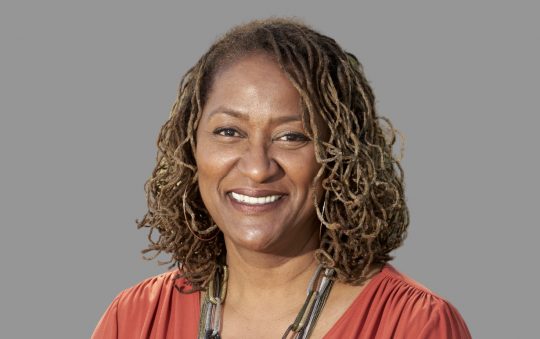
Despite growing public support for new public safety strategies that emphasize prevention and healing rather than incarceration—and that have resulted in a historic 30 percent drop in the state prison population since 2011—many law enforcement groups continue to resist change. Public safety union-led efforts to recall reform-minded district attorneys in Los Angeles and San Francisco are prime examples of this tension. There is, however, at least one proposal to change the current system that all Californians should be able to get behind: SB 731, a bill from Senator María Elena Durazo (D-Los Angeles) that would save lives and help rebuild our economy by sunsetting old conviction and arrest records of people who have paid their debt to society.
This legislation, which would give people a real second chance at life, is a reasonable response to a serious practical and ethical problem. More than eight million Californians are living with a past conviction—many have families and children who depend on their ability to succeed. Yet no matter how hard they try, or how much time passes, current laws deny them essential liberties and opportunities that others take for granted. The stigma attached to old convictions and arrests, combined with nearly 4,800 legal restrictions, bar them from big things—like jobs, housing and educational opportunities—as well as from countless smaller but meaningful activities, like attending school field trips with their children or serving on their homeowners’ association board.
I know about these restrictions because I live with them. I grew up in South Los Angeles and was arrested for the first time when I was 16 for smoking marijuana. The streets offered a stability I did not know at home, and self-medication, whether with alcohol or other substances, was a natural choice given my environment. As a result, I cycled through the system for nearly a decade before realizing I was playing out a script written by someone else. Tired of fulfilling the low expectations of systems that denied opportunities to people who looked like me, refused to invest in neighborhoods where we lived, and whose only response to our unmet needs was policing and incarceration—I turned my life around.
Twelve years later, I am a husband and a father. I have a successful career as a community organizer. Yet even though there is no violence in my now decade-old record, the denials have persisted. When I got out, the 99 cent store would not hire me. For a long time I was personally ineligible for life insurance.
Consequences like these are the exactly wrong response for people trying to rebuild productive, full lives. They undermine our efforts to care for ourselves and our families and put an unnecessary layer of emotional and mental stress on people struggling to do the right thing.
They also compromise public safety, generally, and sabotage the overall economy by sidelining able workers from earning—and spending—money in our state.
Most Californians living with an old conviction have completed their sentence and have lived crime-free for years or even decades. Sensible policy would encourage this behavior by removing barriers to employment, housing, education, civic participation and parental rights for people who have served their time, paid their debts, and not had further contact with the system. Research shows that a good job, for example, is strongly associated with lower recidivism and there is less crime in communities where employment rates are high. Yet, because of the existing barriers, nearly 75 percent of formerly incarcerated individuals are still unemployed a year after their release.
Besides being bad for these folks and their families, this is bad for our economy—which is already struggling due to COVID-19. I am just one of nearly 2.5 million working-age adults in our state living with a past conviction—the equivalent of nearly one in ten Californians who should be part of the labor force. I have experienced people with past convictions to be among the most dedicated, hard-working employees, perhaps because we know the odds are against us. Yet California employers are mostly deprived of this labor, and the government, instead of benefiting from our taxable income and spending, must absorb the costs associated with support.
Sunsetting past convictions to clear away obstacles to stability and success for people living with past convictions and arrests is a commonsense next step in embracing healing and prevention over the discredited old approach to public safety. SB 731 deserves to become law. It will make us all safer. It will boost our economy. Most of all, it will welcome millions back as productive fellow citizens in good standing.
Gilbert Johnson, a resident of South Central Los Angeles, is the statewide manager of Californians for Safety and Justice’s #TimeDone campaign.







